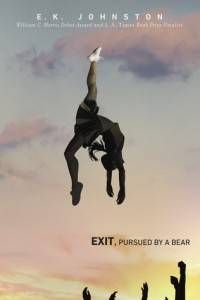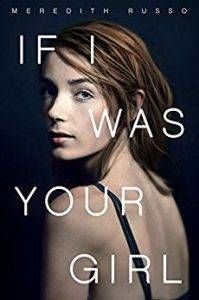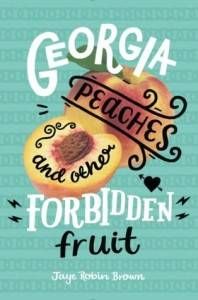
It Starts with Imagining It: 3 YA Books About Struggle with Plausible Happy Endings
When I read contemporary realistic fiction, I tend to mentally sort these stories in two categories: realistic and aspirational. Realistic stories are grounded in reality and tend to be a bit heavier, sadder, and oftentimes come with ambiguous endings. Aspirational books frequently stretch the bounds of believability, but offer escape and entertainment. They are the fun books that I like reading for idealistic values, but bear little relevance to the circumstances and events of my life. I enjoy both types of stories, and I value them equally, though in different ways.

Exit, Pursued by a Bear is a clever modern twist on Shakespeare’s Twelfth Night and is about Hermione, an athlete who is drugged and sexually assaulted at cheer camp. She has no memory of the event, and her rapist’s identity is unknown. If I Was Your Girl follows Amanda, a transgender teen girl who has transitioned and is attempted to start fresh in a new school, away from the bullies and bigots of her past. Georgia Peaches and Other Forbidden Fruit opens with Jo, an out lesbian from Atlanta, moving to a small town with her pastor dad and new stepmother. Her dad asks her to keep her sexuality to herself, so that the family can better fit into their new religious community.
The situations these novels present are reflective of many teens’ experiences, and the authors honor their characters by presenting authentic challenges. Hermione must go through a lengthy healing process that only beings with reporting her rape. Amanda’s new start comes with an estranged father who has difficulties of accepting Amanda as a daughter, new friends who might not be comfortable with the knowledge that Amanda is trans, and a community that doesn’t feel welcoming to anyone who isn’t cishet. Jo hides an important aspect of her identity and attempts to fit in, but in doing so she is unable to be the advocate she wants to be for other queer Christian teens, and hurts many of the people she cares for, in addition to denying her own truth.

Interestingly, all three novels include afterwords by their authors addressing the issue of believability. In her author’s note, Johnston writes, “It was important to me that Hermione have an excellent support system in this book. Her parents, friends, teachers, coach, minister, and community rally around her. She receives the medical care she requires. The police are gracious and helpful. This is not standard procedure.” Johnston goes on to list resources for sexual assault victims in both Canada and the U.S. and urges readers to find their advocates because they do exist.
In her note to cisgender readers, Russo explains, “I have, in some ways cleaved to stereotypes and even bent rules to make Amanda’s trans-ness as unchallenging to normative assumptions as possible.” Russo is a trans woman, and she urges readers to “not apply the details of [Amanda’s] experience as dogma other trans people must adhere to but rather as inspiration to pursue an ever broader understanding of our lives and identities, as well as your own understanding of sex and gender.” To her trans readers, Russo says, “It’s okay if you’re different from Amanda…there is no wrong way to express and embody your most authentic self! You are beautiful, and you deserve to have your body and identity and agency respected.”

I love each of these books because they fearlessly explore difficult situations and show readers that ideal endings aren’t so far out of reach. They teach readers empathy so that they have the power to be better advocates and friends. If we are to create a better, more equal, and accepting world for all, it starts with imagining it. These books do just that.














